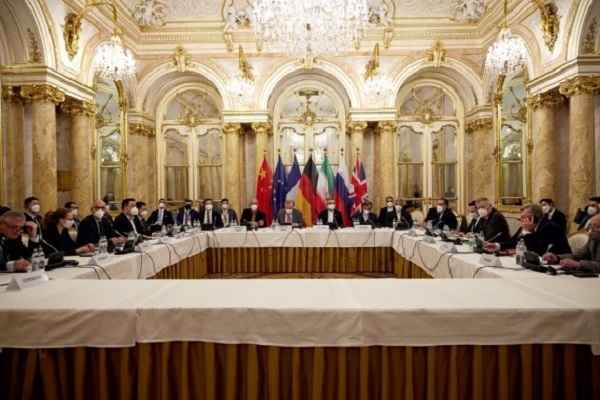
Vienna, (Asian independent) A European Union (EU) diplomat has expressed a degree of hope that the 2015 nuclear agreement with Iran can be resurrected, while also listing several significant stumbling blocks following the resumption of talks in Vienna.
“I think there is a real possibility of an agreement, but it’s not going to be easy,” dpa news agency quoted the diplomat as saying while outlining the remaining areas where no agreement had yet been reached.
After months of deadlock, talks aimed at reviving the Iran nuclear deal chaired by EU chief negotiator Enrique Mora resumed in Vienna on Thursday in a fresh effort to salvage the 2015 agreement, officially called the Joint Comprehensive Plan of Action (JCPOA).
Tehran and Washington still had to agree on the technicalities for lifting certain sanctions on Iran, the diplomat said, asking not to be named.
Further outstanding issues include restrictions on the enrichment of uranium, which Iran is currently enriching to a near-weapons-grade purity of 60 per cent.
A further prerequisite for a deal is a return to the comprehensive monitoring of the Iranian nuclear programme by the International Atomic Energy Agency (IAEA).
Iran and Washington have decided to leave the disputed US classification of the Iranian Revolutionary Guards as a terrorist organisation until a later date.
The current draft also contains guarantees for Tehran should the US withdraw from the agreement again, the diplomat said, following Washington’s unilateral exit from the deal in 2018 during the presidency of Donald Trump.
Western diplomats believe there’s only a brief window of opportunity left in which to salvage the pact, the ultimate aim of which is to prevent Iran from developing nuclear weapons in exchange for the lifting of sanctions on Tehran.
However, talks between Iran and the six other parties to the agreement — China, Germany, France, the UK, Russia and the US — have been faltering for months.
A new draft of the deal currently under discussion takes into account recent nuclear advances made by Tehran, some of which would have to be walked back, dpa has learned.
On Monday, Iran’s nuclear chief Mohammed Eslami repeated the claim that Tehran was already capable of building a nuclear bomb but does not intend to.
“The Onus is on those who breached the deal & have failed to distance from ominous legacy,” the leader of the the Iranian delegation, Kani Bagheri, tweeted earlier.
“The US must seize the opportunity offered by the JCPOA partners’ generosity; ball is in their court to show maturity & act responsibly,” he added.
The US special envoy for Iran, Robert Malley, tweeted that Washington’s “expectations are in check, but the US welcomes EU efforts and is prepared for a good faith attempt to reach a deal. It will shortly be clear if Iran is prepared for the same”.
Iranian President Ebrahim Raisi had called for the lifting of all sanctions imposed on Tehran by the US following its 2018 withdrawal from the deal.
Tehran has consistently argued that it intends to use nuclear energy for purely peaceful purposes, and has repeatedly stressed that the nuclear deal is of no value to the country unless sanctions are also lifted.
The fresh talks come shortly after the IAEA warned that Iran was only weeks away from producing the materials necessary to build a nuclear bomb.







